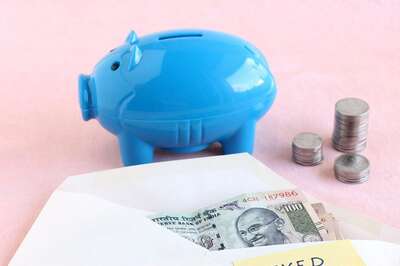
views
Professional Alternatives to “I Hope You Are Doing Well”
“I hope this email finds you well.” “I hope this email finds you well” is a more formal alternative to “I hope you are doing well,” so it's great to send to colleagues, customers, or authority figures you don’t know very well. Writing this phrase at the beginning of your email is a great way to establish a polite tone and express your well-wishes. Example: “Good morning Caleb, I hope this email finds you well. I wanted to reach out to you after our meeting last week and see if you had any questions about the services we offer.” Note: It’s a great idea to use professional alternatives to “I hope you are doing well” because this phrase is often overused. So, it can sometimes sound insincere, which is the opposite of what you’re trying to convey.
“I hope you are having a good week.” For a more friendly and casual alternative, write “I hope you are having a good week.” This greeting is great to use mid-week or later when you’re checking in with a coworker you’re close with or touching base with a colleague you regularly email. Example: “Hi Avery, I hope you are having a good week! Have you had a chance to look over those reports I sent you?”
“How are you doing?” This is a common in-person greeting that’s also perfectly appropriate to use in formal or casual professional emails. Feel free to use other polite and popular greetings like “How are you” or “How have you been?” Or, if you know the person well, use a more casual alternative like “How’s it going?” Example: “Hello Roberto, How are you doing? I wanted to check in about the company banquet next week. Are you able to make it?”
“I hope you enjoyed your weekend.” Use this warm and friendly greeting at the beginning of the week when emailing colleagues you know pretty well or email often, since it’s a bit more casual. This greeting is also a great way to establish a more friendly rapport with a new coworker or client you plan on working closely with. Example: “Hey Violet, I hope you enjoyed your weekend! Can you meet tomorrow to discuss the agenda for the conference?” If you’re emailing a colleague you have a friendly relationship with, feel free to personalize your message and bring up their recent plans or experiences. For instance, you might say: “Happy Monday and welcome back! I hope you had a fun vacation!” “I hope things have calmed down on your end now that the holidays are over!” “I hope you got to enjoy the amazing weather we had this weekend!”
“It was great to see you at…” If you’re emailing someone you recently met, use this polite expression to greet them and remind them of your interaction. Or, use this phrase when emailing a colleague you saw recently but haven’t communicated with in a while. Just be sure to specify where you spoke to the person. Example: “Hi Tim, It was great to see you at the coding event last Thursday. I’d love to talk to you more about your career path and professional experiences. Do you have time to meet next week?”
“It’s great to connect with you again.” This is another formal but friendly expression to use when you’re emailing someone you recently met or contacting someone you haven’t emailed in a while. For instance, you might use this when starting a new project with a colleague you’ve worked with previously. Example: “Hi Brielle, It’s great to connect with you again—it’s been a while since we last collaborated! Can you send me the start-up docs so I can get up to speed on the project?”
“[Contact] suggested I should reach out to you.” Use this phrase when you’re emailing someone you haven’t met or communicated with before, but who you share a mutual contact with. This can make your email sound friendlier and less unexpected, which helps you build a quicker rapport with your recipient. For instance, you might write this when networking or cold emailing employers. Example: “Hello Omar, Mark suggested I reach out to you because you’re in the real estate business. I’d love to talk to you about the kind of work you do. Would you be willing to meet with me sometime in the next few weeks?”
“I hope all is well.” “I hope all is well” essentially means the same thing as “I hope you are doing well.” It’s just a briefer alternative, so it’s great to use when you want to send a quick email and jump straight to your point, but still politely acknowledge the person. Example: “Hi Amina, I hope all is well. I’ve attached my draft of the proposal. Please let me know what you think.”
Leave out a greeting and get right to the point. For less formal emails, a greeting isn’t totally necessary. In fact, lots of professionals think greetings like “I hope you are doing well” are redundant pleasantries that slow you down in getting to the point of the message. So, if you’re emailing someone you communicate with regularly or have an urgent request, feel free to dive straight into your message. Example: “Hey Khalil, Did you submit the shipping order yesterday? I just want to make sure everything’s on schedule.” Ensure your email is still polite, though. Simply start your message with a “Hi” or “Hello” and respectfully make your request. Sending direct and concise emails is a great way to convey that you respect and value your recipient's time.
Casual Alternatives to “I Hope You Are Doing Well”
“Hope you’re doing okay.” This phrase basically means the same thing as “I hope you’re doing well,” it’s just a bit more casual. This is a warm way to greet friends or loved ones you haven’t messaged in a while. You can also use it to check in someone if they’ve been unwell or having a tough time. Example: “Hope you’re doing okay, Tessa! Let me know if you have time to catch up this week.”
“Hope you’re having a good day.” Express these warm wishes when emailing or texting friends, family members, and close coworkers. This is a sweet message to help them start off their day right and remind them that you care for them. Example: “I hope you’re having a good day! Make it a great one!”
“Hope things are going okay.” This is a more informal and general greeting than “I hope you are doing well.” You might use this in short emails or messages to friends and family as a way to quickly greet them and then dive into what you want to say. Example: “Hope things are going okay. Did you ever hear back from that job you applied to?”
“Hope life is treating you well.” This is a warm and thoughtful way to greet friends and family in emails, texts, or letters. It expresses your wishes that things are generally going well in their life, from work to their personal life. Example: “Hope life is treating you well, Remy. I’d love to hear how you’ve been doing!” You can also use this phrase at the end of your message to express the same sentiment.
“Hope things are good with you and your family.” Extend your well-wishes to your friend or loved one’s family with this phrase. This is a sweet way to show that you care for them and hope their family is in good health and untroubled, too. Example: “Hope things are good with you and your family. How old is everyone now?”
“How is life in…?” For a more personal greeting, ask your friend or family member how their current location is treating them. While you can say this at any time, you might specifically use it to greet and check in on a friend who just moved. Example: “How’s life in Los Angeles, Mariah? Have you run into any movie stars?”
“Hope you're staying safe.” Feel free to use another positive adjective in place of “well” to greet and check in on your friends or loved ones. For instance, you can say “Hope you’re staying healthy” or “Hope you’re happy.” Example: “Hope you’re staying safe! Just wanted to check in and see how you’re doing.”
“I Hope You Are Doing Well” Meaning
“I hope you are doing well” is a polite way to ask about someone's well-being. “I hope you are doing well” means you’re hopeful that someone is in good health and happy, and things in their life are generally peaceful. You primarily use it as a greeting in professional emails to politely acknowledge the person before you write the rest of your message.
When and How to Use “I Hope You Are Doing Well”
Use it as a greeting in formal or informal emails. “I hope you are doing well” is most commonly used as a polite, friendly greeting at the beginning of professional emails. It’s formal enough to use with colleagues you don’t know well and friendly enough to say to close coworkers.
Use it to check in on or catch up with friends and family members. “I hope you are doing well” is also a friendly way to greet friends, family members, or acquaintances you haven’t talked to in a while. Use it in emails, texts, or even letters to start a conversation and ask how they’ve been doing.
Responding to “I Hope You Are Doing Well”
Reply that you’re doing well and say you hope they’re doing well, too. In most professional emails, “I hope you are doing well” is simply a polite greeting that the person says before they get to their main request. So, they aren’t expecting you to explain how you’re doing or what you’ve been up to. Just briefly reply that you’re doing well or simply thank them for checking in. Then, write that you hope they’ve been well, too. Them: “Hello Helena, I hope you are doing well. Have you had more time to read over the proposal? We’d love for you to collaborate on the project.” You: “Hello Jalen, Thank you, I’m doing well. I hope you’re doing well, too. Yes, I’m very interested in the project…” Them: “Hi Felix, I hope you’re doing well. Do you have time to meet about the investor’s lunch next week?” You: “Hi Isla, I’m good, and I hope you’re doing well, too. Yes, are you free on Tuesday at 11?” Note: Read the rest of the person’s message for more context on how to reply to “I hope you’re doing well.” If the person elaborates and asks how work is or how a move went, they likely want to know how you’re doing. If they follow it up with a question about something else, they probably just meant it as a polite greeting.




















Comments
0 comment